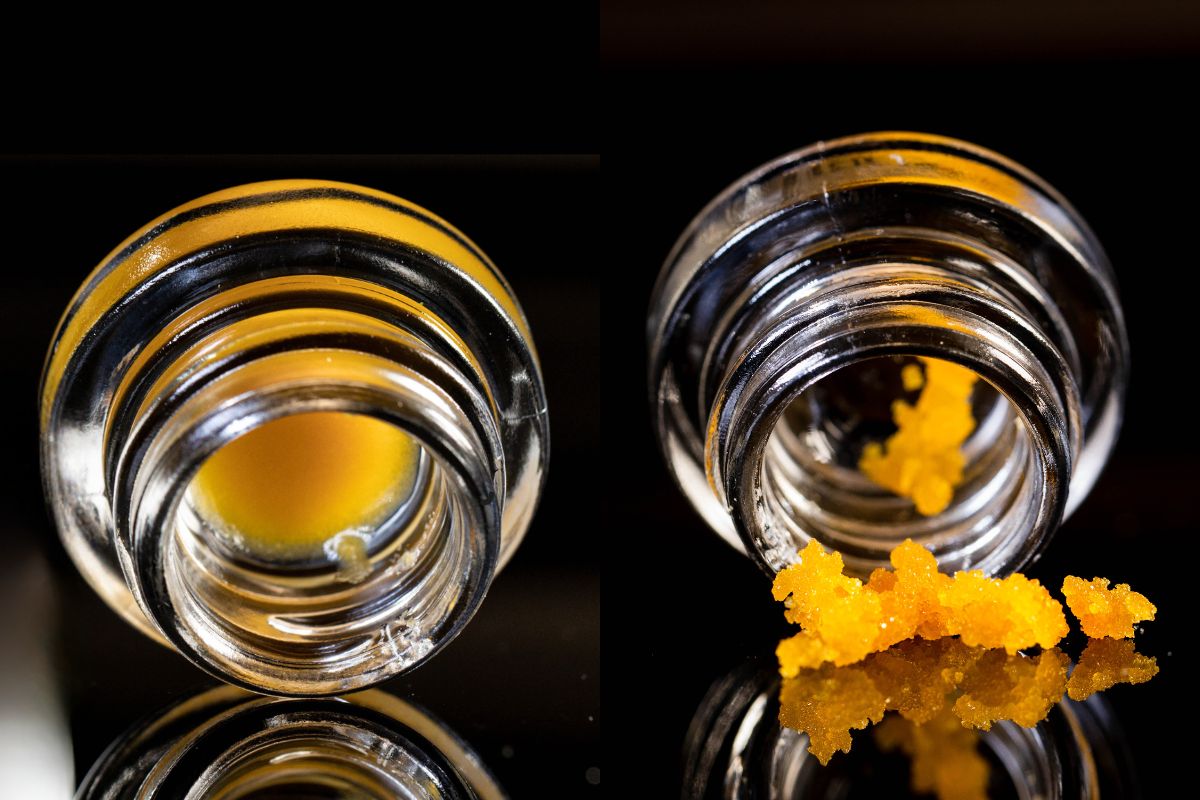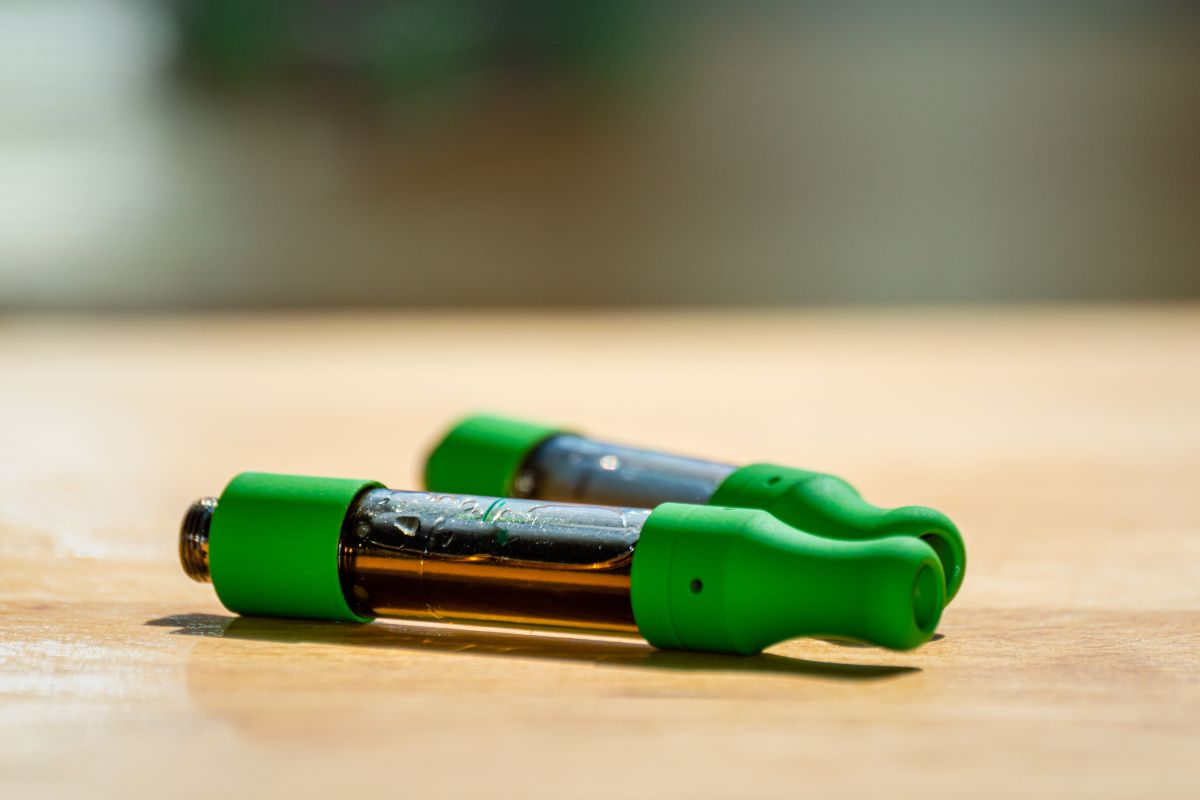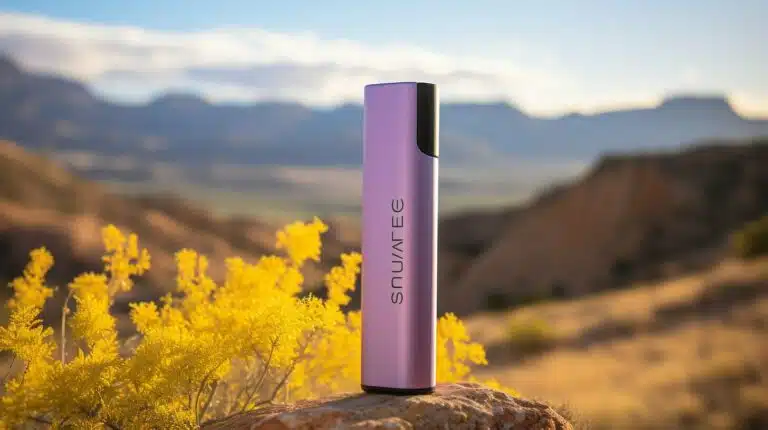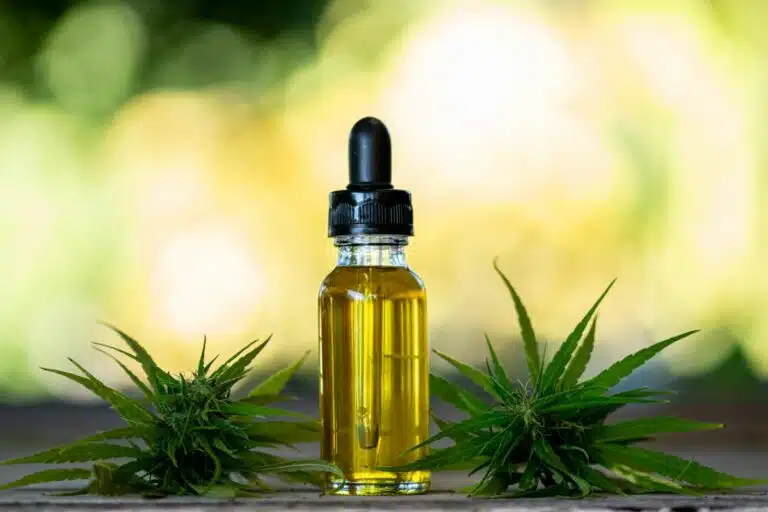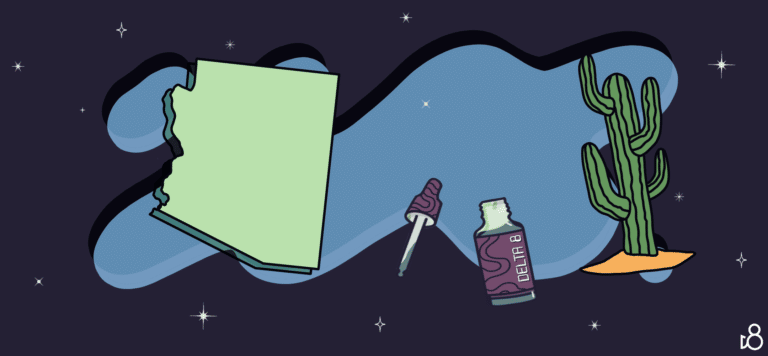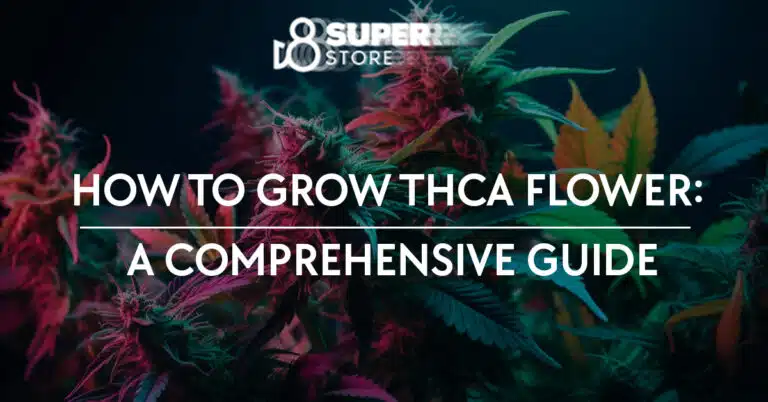Is THCP Legal in North Carolina?
Understanding THCP and Its Legal Status
North Carolinians are people who know what’s up. Throughout Raleigh, Charlotte, Wilmington, Greensboro, you name it, people have embraced the hemp plant and its most popular derivatives from the cannabis industry better known as CBD and Delta 8 THC. But, in the same way Delta 9 came punching through Delta 8’s mojo back in the day, a new cannabinoid known as tetrahydrocannabiphorol (THC-P) has made its way through North Carolina, being notable for its more potent psychoactive effects compared to Delta 9 THC.
So, it is expected that residents of North Carolina have the burning question on their mind: Is THCP legal in my home state? Well, you’re in luck because you’re going to see up to date information and answers to that question in this post. You’ll also learn about what THCP is, whether it’s federally legal, what to watch out for while purchasing it, and the risks or side effects associated with it.
Table of contents
If you’re ready to dance, let’s rock and get some answers to the question: Is THCP legal in North Carolina?
What is THCP and its psychoactive properties?

THC-P, or tetrahydrocannabiphorol, is a naturally occurring cannabinoid naturally found in the cannabis plant that has drawn considerable attention due to its heightened potency, thc content, and potent psychoactive and intense effects.
THC-P’s Unique Chemical Structure
Unlike the more familiar hemp-derived THC and other hemp-derived cannabinoids, THC-P’s cannabis plant features a longer alkyl side chain that significantly increases its binding affinity to CB1 receptors in the brain.
This structural difference in the cannabis plant is believed to be what accounts for its heightened potency among hemp cannabinoids, with early research suggesting that even small doses of THC-P could produce effects that are several times stronger than those of traditional THC.
The science understanding the unique properties of this compound is still developing to shed new light on how it interacts with the human endocannabinoid system but alongside its potential as a more powerful psychoactive agent, having accurate information can help users make informed decisions about its use. THC-P’s discovery and study let us know other important considerations regarding its potential therapeutic benefits and legal status.
Recent Studies into THC-P’s Chemical Structure
In the cannabis industry, recent studies into the chemical structure of THC-P have revealed that it has a seven-carbon alkyl side chain that plays a pivotal role in its enhanced potency compared to THC.
Unlike THC’s five-carbon chain, the longer alkyl side chain in THC-P increases the molecule’s lipophilicity, which leads to stronger interactions with cannabinoid receptors, particularly the CB1 receptor in the central nervous system.
It is a structural modification that not only improves how much THCP binds itself to the CB1 receptors but also potentially amplifies the downstream signaling effects, thereby contributing to a markedly more potent pharmacological profile. Basically, THC-P is way more potent than any other cannabinoid you can try out there.
THCP’s hemp flower is more potent than THC, with up to 30 times the amount of effect THC has on its users. Also, a lot of people find it difficult to differentiate between Cannabidiol (CBD) and THC-P but the difference is simple – CBD is a non-psychoactive compound found in cannabis and as such, it is known for its therapeutic benefits without the high. On the other hand, THC-P, which can be sourced in thcp organic forms, has significant psychoactive effects that far surpass the effects of THC and definitely CBD.
Federal Regulations on THCP and the 2018 Farm Bill
| Aspect | Details |
|---|---|
| 2018 Farm Bill Overview | Legalized hemp and its derivatives (including cannabinoids) if they contain <0.3% Delta-9 THC on a dry weight basis. |
| Hemp Definition | Hemp is defined as Cannabis sativa L. with ≤0.3% Delta-9 THC. THCP, like CBD or Delta-8, must be derived from hemp to be legal. |
| THCP Legal Status | THCP is not specifically listed under the Controlled Substances Act (CSA), but must meet Farm Bill standards to be considered legal. |
| Source Requirement | THCP must be hemp-derived (not from marijuana) and contain <0.3% Delta-9 THC to be federally compliant. |
| DEA’s Stance | DEA considers synthetically derived cannabinoids (even from hemp) as Schedule I substances. Natural THCP may be in a legal gray area. |
| Isomer & Analog Laws | The Federal Analogue Act may apply if THCP is considered structurally or functionally similar to a Schedule I substance. |
| FDA Involvement | The FDA has not approved THCP for any therapeutic use and warns against unregulated cannabinoid products. |
| State Variations | Even if federally legal, state laws vary, and some states may ban or restrict THCP outright. |
| Labeling & Testing | Products must undergo third-party testing and include clear labeling to meet compliance and consumer safety expectations. |
In answering the question: “Is THC-P legal?”, we have to note that because of the relative newness of THCP to the scientific literature, the legal landscape and local laws governing it are still evolving in many jurisdictions, reflecting the evolving nature of cannabis law which is why we need to be informed about the latest federal regulations and legal updates and safety guidelines related to THCP use. Now, let’s look at the legal status of THC-P under federal and state laws:
The 2018 Farm Bill
At this point, we’ll talk about the 2018 Farm Bill because it marked a pivotal shift in the U.S. agricultural and drug policy by legalizing hemp cannabinoids and its derivatives, including lesser-known hemp-derived cannabinoids such as THCP. The legislation clarified that hemp-derived compounds are federally legal as long as the final product contains less than 0.3% Delta-9 THC.
As a result, THC-P—a cannabinoid attracting interest for its potential pharmacological properties—falls under this legal framework, allowing for its production and distribution without falling under the strict local regulations that govern marijuana. So THC-P is federally legal.
Generally, at the federal level, hemp products, including those containing THC-P, are regulated by the U.S. Department of Agriculture (USDA).
The USDA regulates these products to ensure that they meet specific criteria to maintain their legal status, particularly keeping their potency levels within the prescribed limit. As such, THC-P is not considered a controlled substance under federal law and is legal federally.
Legal Landscape of Cannabis in North Carolina
Before diving into the legality of THCP in North Carolina, it’s important to know how the State views Cannabis as a whole.
In North Carolina, marijuana and marijuana plants remain illegal for both recreational and medical use, except for a limited medical marijuana program.
There have been multiple legislative efforts to legalize medical marijuana for medical marijuana patients, such as Senate Bill 3 and Senate Bill 711, but these initiatives have consistently stalled in the House of Representatives due to insufficient support among lawmakers.
On the other hand, hemp-derived products are a different ballgame because again, hemp is not the same as marijuana or marijuana products. We’ll look at the legality of hemp-derived products in the next section.
North Carolina Laws and Regulations

Fortunately, in North Carolina, possessing hemp-derived products like THCP is legal, provided they contain no more than 0.3% delta-9 THC, aligning with the federal standards set by the 2018 Farm Bill.
This means that if a product then exceeds the THC limit or is derived from marijuana rather than hemp, it is considered illegal under state law and the legal repercussions for possession vary based on the amount: possessing up to 0.5 ounces is a Class 3 misdemeanor with a maximum fine of $200; possessing more than 0.5 ounces up to 1.5 ounces is a Class 1 misdemeanor, potentially leading to up to 45 days in jail; and possessing more than 1.5 ounces is a Class I felony, carrying more severe consequences.
Distributing and Selling THCP products
Also, when it comes to distributing or selling cannabis products, including those containing THCP, such activity is strictly regulated in North Carolina. As you now know, products derived from marijuana are considered illegal so if you’re caught selling less than 10 pounds of marijuana, that’s classified as a Class H felony, punishable by 4 to 25 months of imprisonment and a discretionary fine for the first offense. Delivering less than 10 pounds without compensation is a Class I felony, carrying a penalty of 3 to 8 months in prison and a discretionary fine. These strict laws are just a show of the state’s commitment to controlling the distribution of cannabis-related products.
As a matter of fact, in line with the state’s said commitment, the government is considering stricter regulations on psychoactive hemp products like delta-8 THC, so age restrictions can be imposed better and there can be a better oversight of the manufacturing and sale of hemp-derived products in the state.
Cultivating Cannabis
If cultivating recreational cannabis is your forte, then you should know that cultivating cannabis in North Carolina without the proper licensing, is illegal. An unauthorized cultivation of less than 10 pounds is a Class I felony, punishable by 3 to 8 months in prison and a discretionary fine. So, if you’re interested in cultivating hemp, make sure you adhere to the state’s strict licensing processes to ensure compliance with both state and federal laws.
Legal Limit and Drug Tests
| Aspect | Details |
|---|---|
| 2018 Farm Bill THC Limit | Legal hemp-derived products must contain ≤0.3% Delta-9 THC by dry weight. |
| THCP Legal Limit | No specific federal limit on THCP, but it must be hemp-derived and the product must still comply with the <0.3% Delta-9 THC rule. |
| THCP in Drug Tests | Standard drug tests (e.g., urine, saliva) are designed to detect THC-COOH, a metabolite of Delta-9 THC, but THCP may trigger it. |
| False Positives | THCP could potentially cause a positive test result, especially in high doses, due to chemical similarities and metabolism. |
| Detection Time | Unknown for THCP specifically, but likely similar to Delta-8/Delta-9 THC—can range from 2–30+ days depending on usage and metabolism. |
| Test Type Sensitivity | Most drug tests do not distinguish between Delta-9, Delta-8, or THCP—only total THC metabolites. |
| Employer Policies | Even if federally legal, many employers ban all THC use, and a positive test can lead to consequences. |
| Legal Risk | Using high-THCP products may be legally risky in strict THC-zero-tolerance environments (workplaces, probation, etc.). |
| Best Practices | Consumers should always verify product lab reports (COAs), know their state laws, and consider abstaining before drug tests. |
Does THCP Show Up on Drug Tests?
The short answer is yes, THCP can be detected in drug tests.
Many standard drug screenings, such as urine, blood, saliva, and hair tests, are designed to identify THC metabolites, particularly THC-COOH, which is produced when the body breaks down THC compounds in the first place. Now since THCP is structurally similar to THC and other cannabinoids , it is metabolized into compounds that can trigger a positive result on these tests, meaning that even though THCP itself isn’t the direct target, its presence can still be flagged during routine drug testing.
The likelihood of THCP being detected in a drug test also depends on several factors, including how much and how often it’s used, what an individual’s metabolism is like, and the type of test administered. For instance, urine tests can detect THC metabolites for up to 30 days after use, while hair follicle tests can reveal usage up to 90 days later. Blood and saliva tests have shorter detection windows, typically identifying recent use within hours to a few days. So given these variables, even occasional use of THCP could result in a positive drug test, especially if the test is conducted within a timeframe when metabolites are still present in the body.
How to Avoid a Positive Test
If you know that you may get tested for drugs from time to time, maybe at your job or by law enforcement, whatever the case, abstaining from the use of THCP is the most effective strategy in minimizing the risk of a positive drug test.
However, if you can’t abstain, just be fully aware of your testing schedules and allow ample time for your body to eliminate the metabolites before your test happens.
Also, staying hydrated, maintaining a healthy diet, and engaging in regular exercise may aid in metabolizing and excreting these compounds more efficiently. However, these methods are not foolproof, and the safest approach remains to avoid THCP products, especially when facing imminent drug testing.
Market Availability and Consumer Information

Types of THCP Products Available in the Market
THC-P is currently gaining more popularity than ever because of companies introducing a variety of thc p products through which different THC-P user needs can be met, whether it’s relaxation, creative inspiration, or relief from everyday stress.
Premium THCP products from reputable brands are currently available in many forms such as pre-filled THC-P vape cartridges that stand out for those who enjoy a quick and robust experience, disposable devices that are pre-charged and ready for use straight out of the package, edible THCP products such as THCP gummies, chocolates, and beverages that provide a more sustained effect as the potent cannabinoid is slowly absorbed.
How to Verify the Legality of THCP Products
When purchasing and consuming THCP products, buying from a legal dispensary is one of the best choices you can make, especially in North Carolina where regulations help ensure safety and quality.
Licensed shops and THC-P brands follow strict state guidelines and regularly test their products, which means consumers have a much higher chance of getting a product that meets safety standards. You get to feel more comfortable when purchasing THC-P, knowing that experts have overseen the production and distribution process.
However, the story isn’t all completed yet though. Because THC-P is a newer cannabinoid, it hasn’t settled into the market the same way that other more established compounds have, so it might not be as easy to come by as other cannabis products. This is why for those interested in purchasing THCP, it might take some extra research to locate a reliable source that offers legal THCP products from reputable sources , and even then, the selection might be more limited, with more information and guidance still coming to light as regulations evolve.
So, if you’re considering trying THC-P, do a bit of homework before diving in. If you’re not in North Carolina, always double-check your local laws to make sure the product is legal in your area and if you are in a state where THCP is legal, make sure that what you’re buying comes with proper third-party lab reports or certificates of authenticity from a trusted source.
Also, since THC-P can be quite potent, starting with a small dose is a wise way to understand your personal tolerance. This careful approach will help ensure your safety and let you enjoy the experience without any unpleasant surprises.
Risks and Side Effects of THC-P Use
| Category | Details |
|---|---|
| Potency | THCP is estimated to be up to 33x more potent than Delta-9 THC, increasing the risk of intense psychoactive effects. |
| Common Side Effects | Anxiety, dry mouth, red eyes, dizziness, increased heart rate, paranoia, confusion. |
| Severe Reactions | High doses may cause hallucinations, panic attacks, or temporary loss of motor coordination. |
| Impairment | Can significantly impair cognitive and motor functions—unsafe for driving or operating machinery. |
| Tolerance & Dependence | Repeated use may lead to increased tolerance, requiring higher doses, and potential for psychological dependence. |
| Drug Interactions | May interact with prescription medications, especially those affecting the central nervous system. |
| Long-Term Effects | Unknown due to limited research; however, concerns include mental health impacts and memory impairment. |
| Legal Consequences | Legal gray area—could result in unintentional violations of workplace policies or state laws. |
| Not for Everyone | Not recommended for pregnant or nursing individuals, those with a history of psychosis, or under 21. |
THC-P, being a psychoactive compound, does offer a unique experience due to its strong effects, but like any powerful compound, it comes with its set of psychoactive effects in spite of its potential therapeutic benefits.
Common Side Effects
Users have reported that the most noticeable of these is the intense alteration of the mind, which can sometimes bring on feelings of heightened anxiety or even paranoia.
For some, this amplified mental effect can be both intriguing and overwhelming, particularly if they are new to cannabinoids with such a robust influence on mood and perception.
Another common set of side effects includes physical reactions that are typical of many cannabinoids. For instance, red or bloodshot eyes are frequently observed due to the dilation of blood vessels in the ocular region which is a harmless, but visually striking effect. Similarly, a dry mouth, often described as cottonmouth, is a regular occurrence that happens as the compound interferes with the salivary glands. Along with these, many users notice a faster heartbeat or a sense of dizziness; the increased heart rate can make one feel a bit jittery or unsteady, especially if they are sensitive to such changes.
Impaired Motor Skills
Beyond these, THC-P may also affect coordination and overall energy levels. Some users experience impaired motor skills or pronounced drowsiness, which can make routine tasks seem more challenging, especially after higher doses.
These different risks and side effects are the reason why starting with a low dose is widely recommended so that one can safely gauge these effects—giving the body time to adjust and ensuring that any potential interaction with other medications or underlying conditions is minimized.
Ensuring Compliance with North Carolina Laws

Importance of Lab Analysis and COA for THCP Products
When it comes to THC-P products from reputable sources , quality and safety are fundamental.
Interest in this cannabinoid is growing and consumers are increasingly mindful about using products they can trust. Many people now look for brands that prioritize transparency and care by consistently testing their products so if businesses can work toward meeting these standards, there’ll be more trust between manufacturers and users, and we can make sure that only the best products reach the market.
Third-Party Lab Testing
A key part of this process is third-party lab testing, which confirms the potency, purity, and absence of harmful contaminants in the THCP product.
Independent laboratories work with reputable brands to deliver Certificates of Analysis (COAs) that verify everything from a product’s cannabinoid profile to its compliance with health standards. So, if you’re buying THC-P products, look out for these unbiased tests because they’ll offer you a clear snapshot of what is in each hemp-derived product, allowing you to make informed decisions without having to delve into complex technical details.
Adhering To Set Standards
Meeting state and federal standards is another important aspect of maintaining product integrity. When products adhere to these regulations, they not only contribute to a safer market but also set an example for best practices across the industry.
Conclusion
So, nutshell-wise, in North Carolina, THCP is legal as long as it is derived from hemp and contains no more than 0.3% delta-9 THC, in accordance with the 2018 Farm Bill. This means that adults can legally purchase and use THCP products in the state. However, there is no comprehensive medical marijuana program, and the recreational use of marijuana remains illegal. Therefore, while marijuana remains a big ‘no’, hemp-derived THCP is permitted, marijuana-derived THC products are still prohibited under state law.
Currently, research into THCP is also still in its early stages, but the studies we have suggest it may offer several potential benefits besides a great high, like pain relief, anti-inflammatory effects, and appetite stimulation. However, we still need more research to fully understand its benefits and how it compares to other cannabinoids like CBD and THC.
Now, as THCP continues to gain attention, it’ll be important for you to stay informed about the evolving legal landscape and emerging research. Current local laws may permit the use of hemp-derived THCP, but future regulations could ban THCP as more is learned about this cannabinoid. So stay updated on both legal developments and scientific findings, and you’ll never walk into a cannabis store, confused about your THCP.


